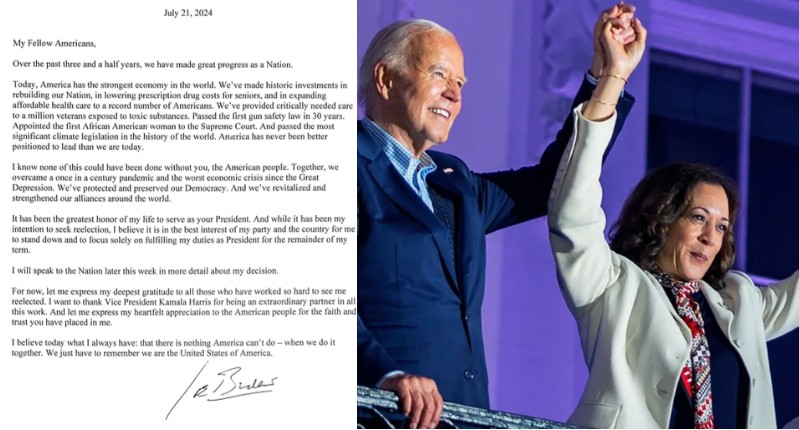Amidst global condemnation following Israeli airstrikes that claimed the lives of seven aid workers from the World Central Kitchen (WCK) in Gaza, the Biden administration has come under scrutiny for approving the transfer of thousands of bombs to Israel. The revelation, reported by The Washington Post, sheds light on the delicate balance of U.S. support for Israel and the humanitarian crisis unfolding in the region.
Transfer of Bombs to Israel
The Biden administration, led by President Joe Biden, sanctioned the transfer of a significant arsenal to Israel, including more than 1,000 MK82 500lb bombs and a similar quantity of small-diameter bombs, alongside fuses for MK80 bombs. This decision, as reported by multiple sources, underscores the ongoing military support provided by the United States to Israel, a staunch ally in the Middle East. CNN corroborated the report, further amplifying the significance of the transfer.
Despite the tragic incident involving the loss of seven aid workers, including a US-Canadian dual citizen, in Gaza, the approval for the bomb transfer occurred before the Israeli airstrikes struck the humanitarian convoy. The timing of the authorization has raised questions about the administration’s stance on the escalating violence in the region and its commitment to humanitarian principles. The state department, when questioned about the decision not to halt the transfer process post-attack, refrained from providing a comment, leaving room for speculation and criticism.
U.S.-Israel Relations and Military Assistance
The transfer of bombs to Israel is not an isolated event but rather a continuation of long-standing military cooperation between the two nations. With an annual military assistance package amounting to $3.8 billion, the United States reaffirms its commitment to bolstering Israel’s defense capabilities. The recent approvals for bomb transfers, worth billions of dollars, highlight the depth of this strategic alliance, which remains a cornerstone of U.S. foreign policy in the region.
Moreover, the timing of these transfers, authorized by Congress several years prior to the recent escalations in Gaza, underscores the complexities of arms deals and international relations. While the U.S. government retains the authority to suspend such packages, the decision to proceed reflects a broader geopolitical calculus that prioritizes strategic interests over immediate humanitarian concerns. As calls for accountability and restraint grow louder in the wake of the Gaza airstrikes, the Biden administration faces mounting pressure to reassess its approach to military assistance and diplomacy in the Middle East.
Global Response and Humanitarian Implications
The tragic loss of life among humanitarian workers in Gaza has sparked outrage and condemnation worldwide, adding urgency to calls for de-escalation and peace negotiations. The airstrikes, coupled with the revelation of bomb transfers, underscore the devastating toll of the Israel-Gaza conflict on civilian populations and humanitarian efforts. As the international community grapples with the complexities of the situation, there is a growing consensus on the need for a diplomatic resolution to end the cycle of violence and address the root causes of the conflict.
The Biden administration’s response to the Gaza airstrikes and its decision to proceed with bomb transfers have elicited mixed reactions, with critics questioning the coherence of U.S. foreign policy and its commitment to human rights. As pressure mounts for accountability and transparency, the administration faces a delicate balancing act between supporting its allies and upholding its values on the global stage. The tragic loss of innocent lives in Gaza serves as a stark reminder of the urgent need for meaningful dialogue, negotiation, and a concerted effort to address the underlying grievances driving the conflict.
Biden’s Warning Signals Policy Shift:
In a roughly 30-minute call between Biden and Netanyahu, the U.S. President articulated a clear message: future U.S. support for Israel’s actions in Gaza hinges on tangible steps to protect civilians and facilitate humanitarian aid. This represents a significant departure from previous administrations‘ unwavering backing of Israel’s military endeavors. Biden’s threat to reconsider U.S. support marks a pivotal moment in U.S.-Israel relations, underscoring the growing international pressure to address the humanitarian crisis unfolding in Gaza.
The White House refrained from specifying potential changes to U.S. policy, but hinted at possible repercussions, including alterations to military sales to Israel and diplomatic support on the global stage. This ambiguity adds a layer of uncertainty to the situation, as both countries navigate the delicate balance between strategic alliances and humanitarian concerns.
Table of Contents
Discover more from OGM News NG
Subscribe to get the latest posts sent to your email.














